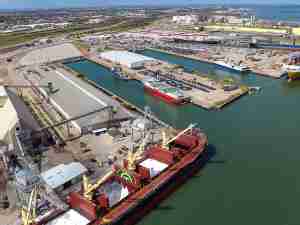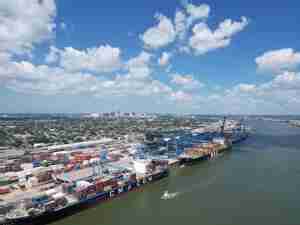Ocean Conservancy and Pacific Environment are part of 15 port authorities, industry groups and environmental organizations that signed a letter calling on Congress to include at least $20 billion in any infrastructure deal to support the decarbonization of the shipping industry.
The organizations point out that the global shipping industry is a major contributor to greenhouse gas emissions and is responsible for roughly 3% of global carbon dioxide emissions, which is more than all coal plants in the U.S. combined. The U.S. has an important role to play in transitioning the sector away from fossil fuels and towards a zero-emission future because America’s ports are a critical point of access for oceangoing shipping vessels, which are responsible for 80% of world trade. Billions of dollars’ worth of goods flow through U.S. ports, creating $5.4 trillion in economic activity each year and supporting nearly 31 million American jobs in 2018.
In the letter, the organizations call for the $20 billion investment to go towards research and development, port infrastructure, and financing options for U.S. ships, and that it be directed to the Department of Transportation, the Department of Energy, and the Environmental Protection Agency. Specifically, they ask that Congress provide at least $3 billion for research and development of zero-emission fuels and ship technologies and at least $1 billion for zero-emission ship construction and retrofits.
“The U.S. has the opportunity to lead the world in transitioning the shipping sector towards a zero-emissions future,” said Dan Hubbell, Shipping Emissions Campaign Manager at Ocean Conservancy. “By including this critical investment in any infrastructure package, Congress and the Biden Administration have the opportunity to live up to their climate commitments and goals. At the same time, if they make these investments, Congress will be creating create reliable and well-paying jobs as well as cleaning up air pollution that disproportionately affects lower-income communities and communities of color.”
“Ships are responsible for 3% of global carbon dioxide emissions – more climate pollution than all coal plants in the United States combined," said Madeline Rose, Climate Campaign Director at Pacific Environment. "Congress has a unique opportunity to invest in a zero-emission economy by taking the necessary steps to transform maritime and ports. We need decisive action now for the zero-emission transition of shipping and ports."










